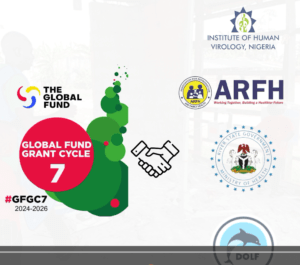 23rd May is International Day to End Obstetric Fistula, a day to raise awareness and increase efforts to end obstetric fistula.
23rd May is International Day to End Obstetric Fistula, a day to raise awareness and increase efforts to end obstetric fistula.
Obstetric fistula is one of the most serious and tragic injuries that can occur during childbirth. It is a hole between the birth canal and the bladder or rectum caused by prolonged, obstructed labour without treatment.
The condition typically leaves women incontinent, and as a result they are often shunned by their communities. Sufferers often endure depression, social isolation and deepening poverty. Many women live with the condition for years – or even decades – because they cannot afford to obtain treatment.
According to the United Nations, an estimated 2 million women in sub-Saharan Africa, Asia, the Arab region, Latin America and the Caribbean are living with this injury, and some 50,000 to 100,000 new cases develop each year. Yet fistula is almost entirely preventable. Its persistence is a sign that health systems are failing to meet women’s essential needs.
The Association for Reproductive and Family Health supports the international Day to End Obstetric Fistula.
Obstetric Fistula commonly occurs among the poor under-privileged women who give birth without proper medical help. ARFH is committed to improving the quality of life of such people in under-deserved communities,
ARFH is affiliated with the International Federation of Gynecology and Obstetrics (FIGO) through our President/CEO, who is a renowned Gynecologist and Obstetrician.
 FIGO is the only global organisation representing gynecologists and obstetricians, with Member Societies in 130 countries/territories. Its vision is for women of the world to achieve the highest possible standards of physical, mental, reproductive and sexual health and wellbeing throughout their lives. It is committed to working for the benefit of all women, especially those who suffer from highly distressing – yet largely treatable – conditions such as fistula.
FIGO is the only global organisation representing gynecologists and obstetricians, with Member Societies in 130 countries/territories. Its vision is for women of the world to achieve the highest possible standards of physical, mental, reproductive and sexual health and wellbeing throughout their lives. It is committed to working for the benefit of all women, especially those who suffer from highly distressing – yet largely treatable – conditions such as fistula.
Traumatic fistula can be caused as a result of sexual www.onlinepharmacytabs.com violence. Fistula inevitably has severe psychosocial and socioeconomic consequences that are brought on by social segregation, which in many cases results in loss of livelihood, isolation and feelings of shame and despair.
Through its ongoing Fistula Surgery Training Initiative, FIGO is actively involved in building the capacities of fistula surgeons in accredited training centres, using the ‘FIGO Global Competency-Based Fistula Surgery Training Manual’. Training Fellows are chosen from countries with a high prevalence of fistula, and the Initiative is dedicated to helping them acquire the knowledge and skills needed to prevent obstetric fistula, and provide high quality surgical, medical and psychosocial care to women who have incurred fistula, whether during childbirth or because of inflicted trauma.
To date, over 60 Fellows from 22 fistula-affected countries across the world are now involved in the FIGO training programme and have participated in placements in FIGO Accredited Training Centres in Ethiopia, Tanzania, Nigeria, Kenya and Uganda. Timely data collections and close monitoring of Fellow progress – with coaching visits in their own health facilities – ensure that more affected women are treated and the Initiative keeps on course. There is now an urgent need to scale up the supply of fistula repair instruments and equipment to the Fellows to ensure they have access to specialised materials in order to provide high quality fistula repair work in their home facilities.
Through its ground-breaking Fistula Initiative, regular communications with partners and stakeholders, collaborative efforts with FIGO Member Societies and work with other fistula related organisations, FIGO is contributing positively to the new global Sustainable Development Goal no 3 – ‘Ensure healthy lives and promote well-being for all at all ages’.
Let’s all join hands to #EndFistula.




